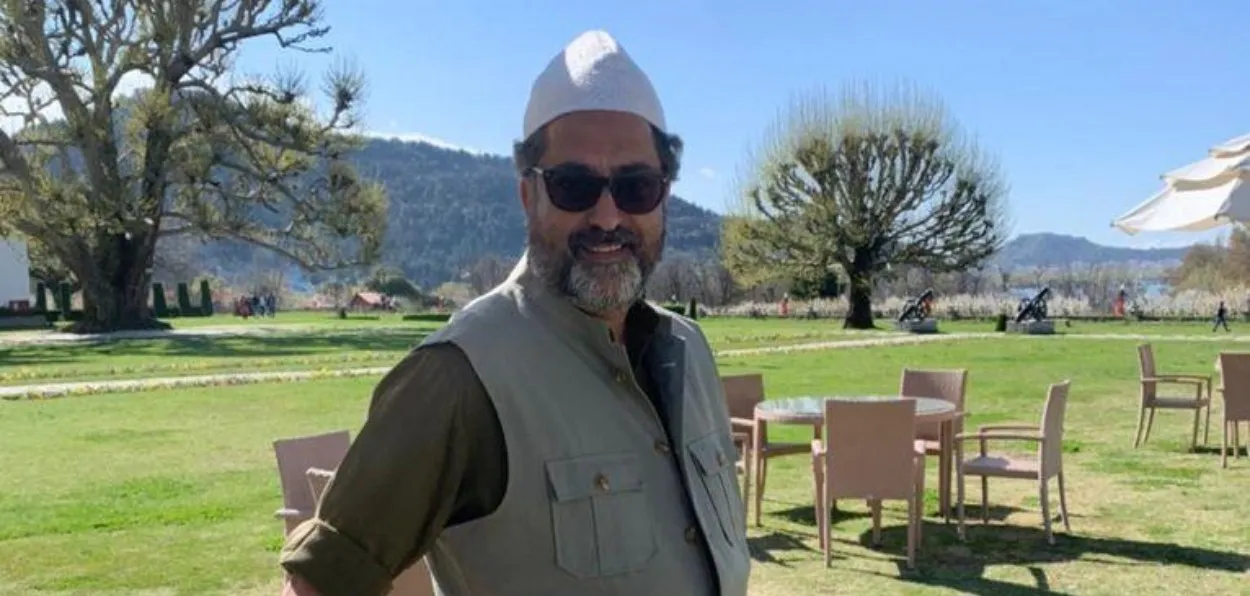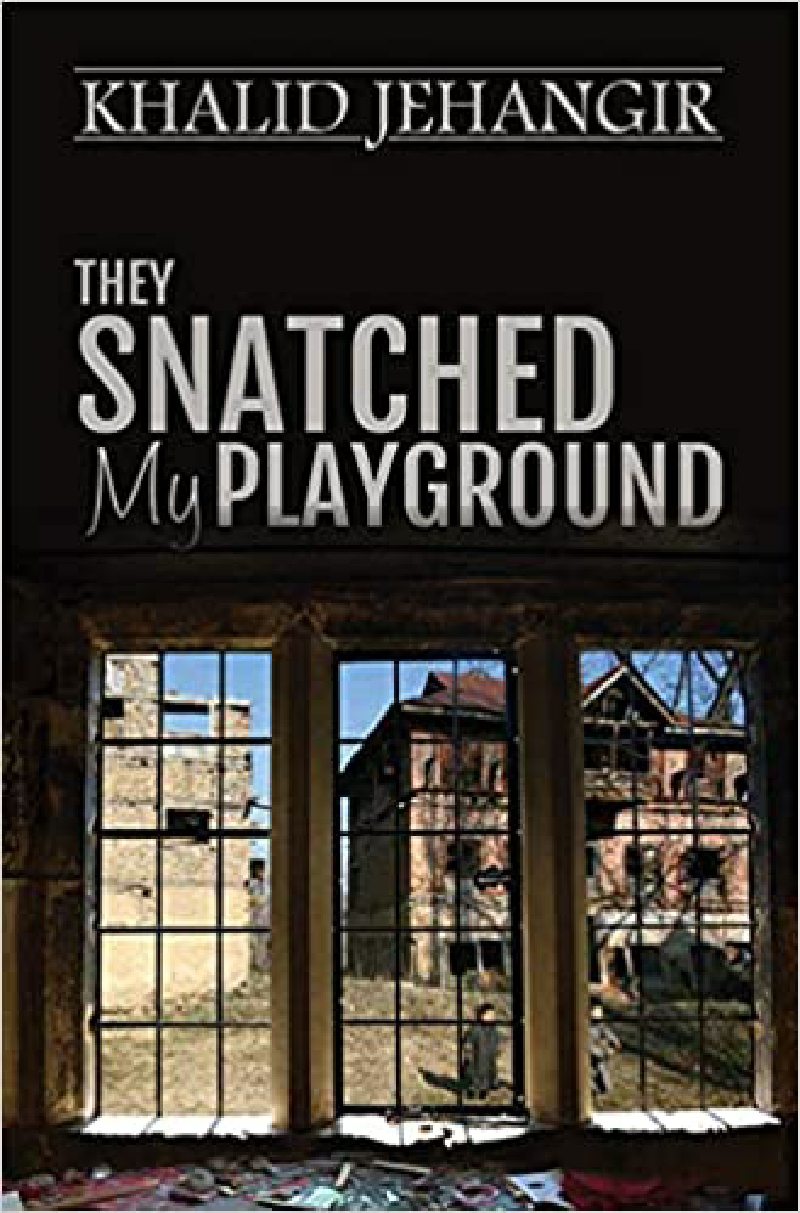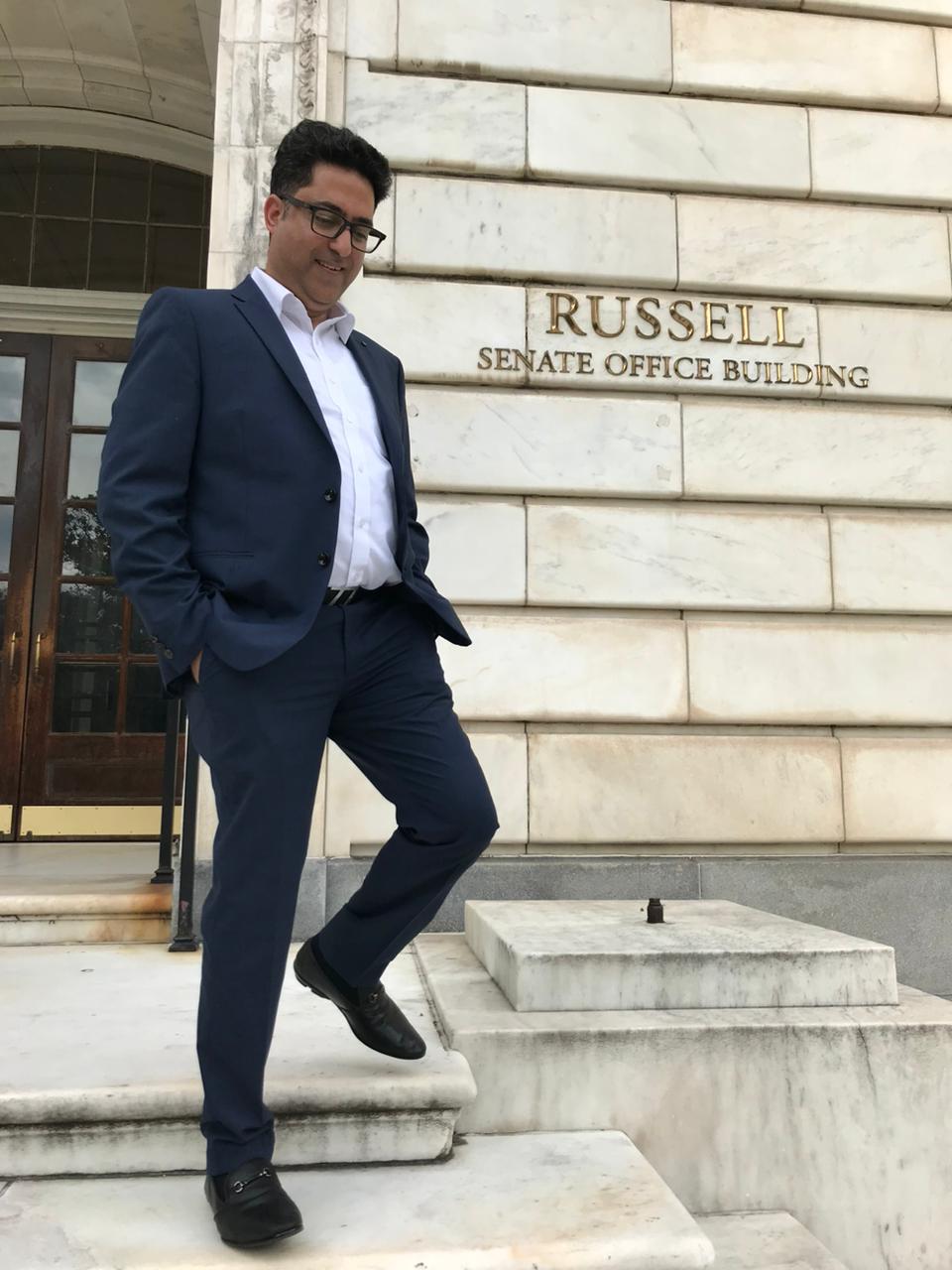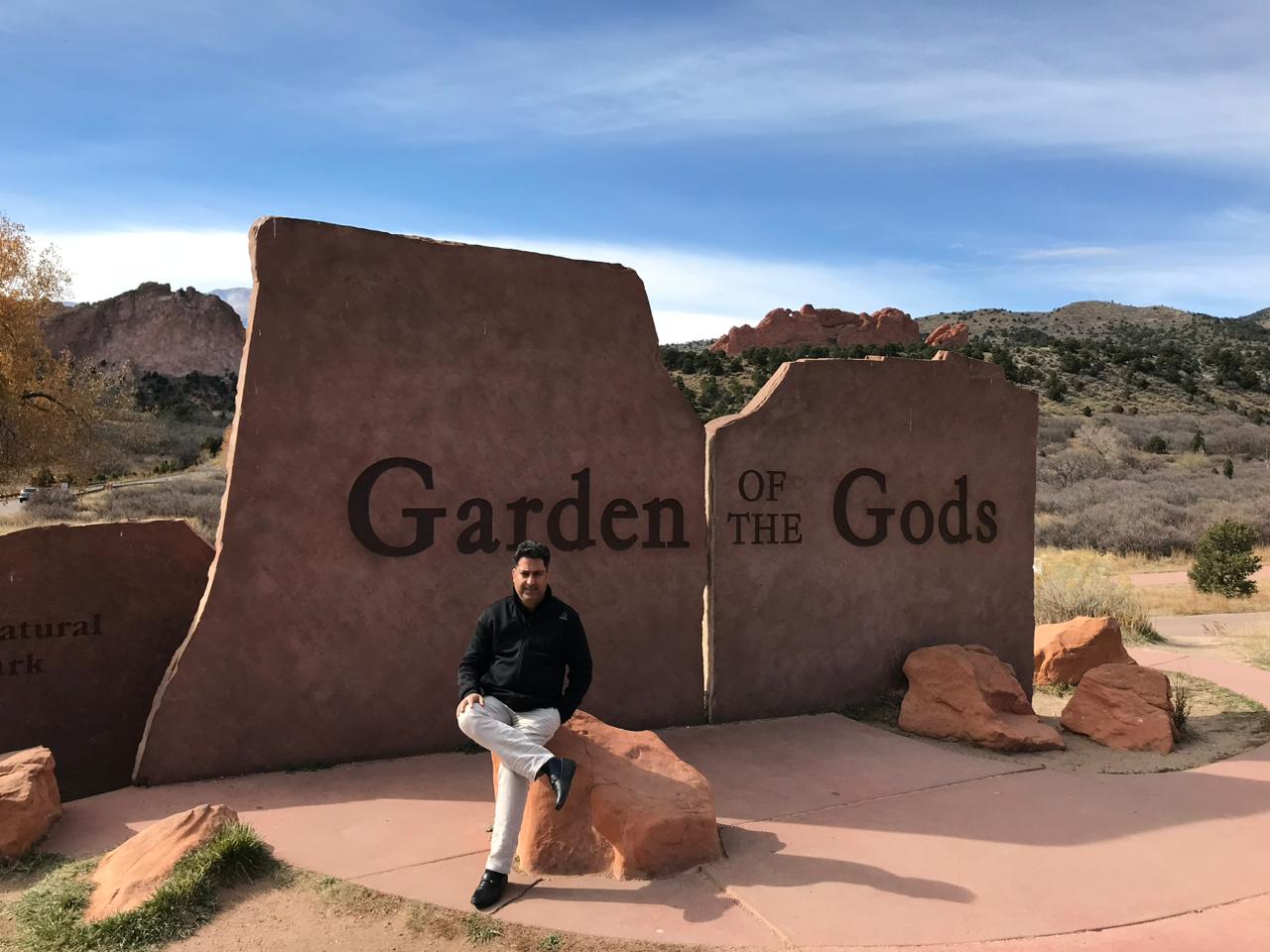
Aasha Khosa/New Delhi
Khalid Jahangir, a prominent political activist and author from Kashmir, says he feels most proud of being an Indian Muslim while traveling abroad. “Unlike the passports of other Muslims from Islamic countries that have symbols of aggression like a sword or a falcon imprinted on the cover or have a green background to suggest a religious link, my Indian passport has Satyamev Jayate (Truth Triumphs everywhere) embossed on it.”
“Satyamev Jayate is a slogan that connects all Indians and rather all humans and has no religious undertone. My passport says I am an Indian and that is my most important identity and not my religion, which is something personal,” says Khalid Jahangir, author of the books, They snatched my playground and Why Article 370 had to go?

The cover of Khalid Jehangir's book, They Snatched my Playground
Speaking with Awaz-the Voice, the 46-year-old politician from Kashmir’s Ganderbal area said, at all the international airports he walks in easily after normal questioning at the Immigration counter while he sees many citizens of Muslim countries like Pakistan and Syria, including their top officials, being made to stand in a separate queue for further verification of their antecedents on passports.
This is because immigration and security officials don’t perceive India as a hotbed of terrorism or radical ideology and therefore a Muslim from that country as a threat to the country's sovereignty. During his recent visit to Europe, he was embarrassed to see a Pakistani delegation being asked to queue up separately for elaborate questioning and verification of their antecedents.
“India passport gets one respect while many Muslim passport holders of Islamic countries are seen with suspicion,” he said.
Jahangir, chairman of the International Centre for Peace Studies (ICPS), a Delhi-based thinktank, is a frequent traveler. He says “While interacting with others at the conferences he has discovered that being an Indian Muslim conjures up a different image in the eyes of the beholder in comparison with Muslims from other countries.”
 Khalid Jehangir in Washington, DC, USA
Khalid Jehangir in Washington, DC, USA
Being a Kashmiri, he says, his homeland has seen violence and the involvement of a lot of youth in terrorism. However, he says unlike terrorism and Islamic insurgencies elsewhere, the Kashmiris were handed over arms and ammunition by Pakistan and they didn’t sell their assets for the passion of fighting.
Though Kashmir was besieged by terrorism and violence for nearly three decades, yet the situation there is unlike in other terrorism hotspots like Yemen or Syria.
He says on closer scrutiny of Kashmir’s turmoil, one will find that no person had even sold an inch of land for the so-called jihad. “A Kashmiri (Muslim) or for that matter any Indian Muslim doesn’t invest in bloodshed. He has been given arms by Pakistan.”
As against this, he said he knows how after 9/11 Muslims in Iraq, Syria, and other Islamic countries, including Osama bin Laden sold their everything to buy arms for what they think is Jihad. “Here, even Burhan Wani, who is the poster boy of jihad in Kashmir for Pakistan didn’t sell anything to buy the gun; he was given one.”
He however says Kashmiri Muslims have a distinct identity and thought process that is different from other Muslims in the country. “Kashmiri Muslims never show their love of Mughals for it was Akbar who exiled last of the Kashmiri King Yusuf Shah Chak, (Kashmiri King who ruled from 1579 to 1586) and who lies buried in Bihar (Biswak village in the Nalanda district).
Our culture is different from the Indian Muslims in the food, social traditions, and of course language. “Some of them carry the burden of Mughal rule while Kashmiris hail their Brahmin ancestry and even know the names of their Hindu ancestors. Also, Islam came to Kashmir in a benign way and not through coercion”
Kashmiri Muslims are not burdened with the sense of history that their ancestors were oppressors, he feels.
Jehangir says while traveling across India he gets this feeling that the Indian Muslims feel threatened by the majority of Hindus, their ideas and their ways of life, temples, rituals, etc. but Kashmiri Muslims lived comfortably with all these till Pakistan interfered through armed insurgency in 1989.
 Khalid Jehangir in the USA
Khalid Jehangir in the USA
Jehangir says Indian Muslims are lucky to be living in this land of huge diversity. “Whichever state or the UT I go to, I come across so many different cultures, languages, languages, and food. This is the best environment for our children.”
He however regrets that Kashmir is the only part of the country where this diversity is missing. “I grew up with (Kashmiri) Pandits neighbours and seeing diversity as it existed till 1989 but I feel sad that my children didn’t get that environment.”
Jehangir and his wife Susan, who hails from Tamil Nadu, got married in 2002. They are parents to two daughters. Susan is a qualified engineer and works with a prestigious school in Srinagar. Their elder daughter Sophia is headed abroad for her undergrad studies and the younger one, Riana, is in school.
He says, people studying Kashmir and terrorism must realize that the diversity of Kashmir was the first target of Pakistan. Pakistan pumped in a lot of money in Kashmir to spread the hate of Hindus like calling them Butparast (idolators) before launching the insurgency, Khalid Jehangir says.
"For this reason, even before they (Terrorist groups) started attacking leaders, they killed Kashmiri Hindus causing their exodus.”
He also blamed some Kashmiri leaders for supporting this idea of Pakistan to keep “the two-nation theory alive.”
ALSO READ: How Pak terrorist Mast Gul tried to annihilate Sufism in Kashmir and failed
Khalid Jehangir said Muslims in India might face an occasional problem because of social factors, but, in his experience, neither he nor his children have ever faced institutional bias for their religion.
